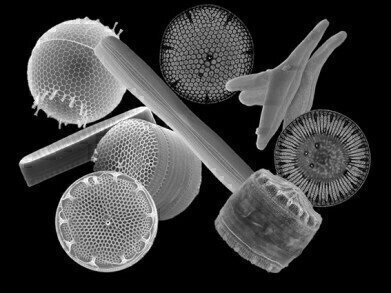Water/Wastewater
New project aims to provide genetic insights into key aquatic microbes
Oct 25 2020
Scientists at the University of East Anglia (UEA) are to embark on the largest algal genome sequencing project to date.
Diatoms, a class of microalgae, are found in nearly all marine and freshwater habitats and are the most species-rich algal class, with at least 100,000 species. They are important to the world's eco-system and contribute to 20 per cent of global carbon fixation and oxygen production. However, with genomic information from only about 10 diatoms, our ability to harness their unique biology is very limited.
This new project will sequence 100 diatom species to provide insights into their roles as key players for capturing carbon dioxide and as the foundation of diverse aquatic food webs.
These insights will also be critical for advancing diatom-based biotechnology, for example nanotechnology for sensor development and drug delivery, and synthetic biology platforms for the production of nutraceuticals, such as antioxidants and dietary supplements, as well as biofuels and carbon capture.
The ‘100 Diatom Genomes Project’ is one of 27 proposals to be supported through the annual Community Science Program (CSP) call of the US Department of Energy Joint Genome Institute (JGI), which makes large-scale genomics available to researchers studying relevant issues in energy and environment.
Principle investigator Prof Thomas Mock, of UEA’s School of Environmental Sciences, said: “Support from JGI for sequencing 100 diatom genomes will catapult diatom research to an entirely new level. Thus, this project will be a game changer for our understanding of the biology and diversity of one of the most significant groups of algae that have shaped life on Earth for millions of years.”
The three-year project involves more than 20 collaborators, including Prof Neil Hall of the Earlham Institute in Norwich. It is one of several accepted proposals that reflect JGI’s interest in algal research for bioenergy production and algae’s roles in nutrient cycling. Algae in general represent a very diverse group of primary producers, contributing 50 per cent of global primary production through photosynthesis, but only a small fraction have been sequenced so far.
Digital Edition
AET 28.2 April/May 2024
May 2024
Business News - Teledyne Marine expands with the acquisition of Valeport - Signal partners with gas analysis experts in Korea Air Monitoring - Continuous Fine Particulate Emission Monitor...
View all digital editions
Events
Jul 30 2024 Jakarta, Indonesia
China Energy Summit & Exhibition
Jul 31 2024 Beijing, China
2024 Beijing International Coal & Mining Exhibition
Aug 07 2024 Beijing, China
IWA World Water Congress & Exhibition
Aug 11 2024 Toronto, Canada
Aug 25 2024 Stockholm, Sweden and online









.jpg)








